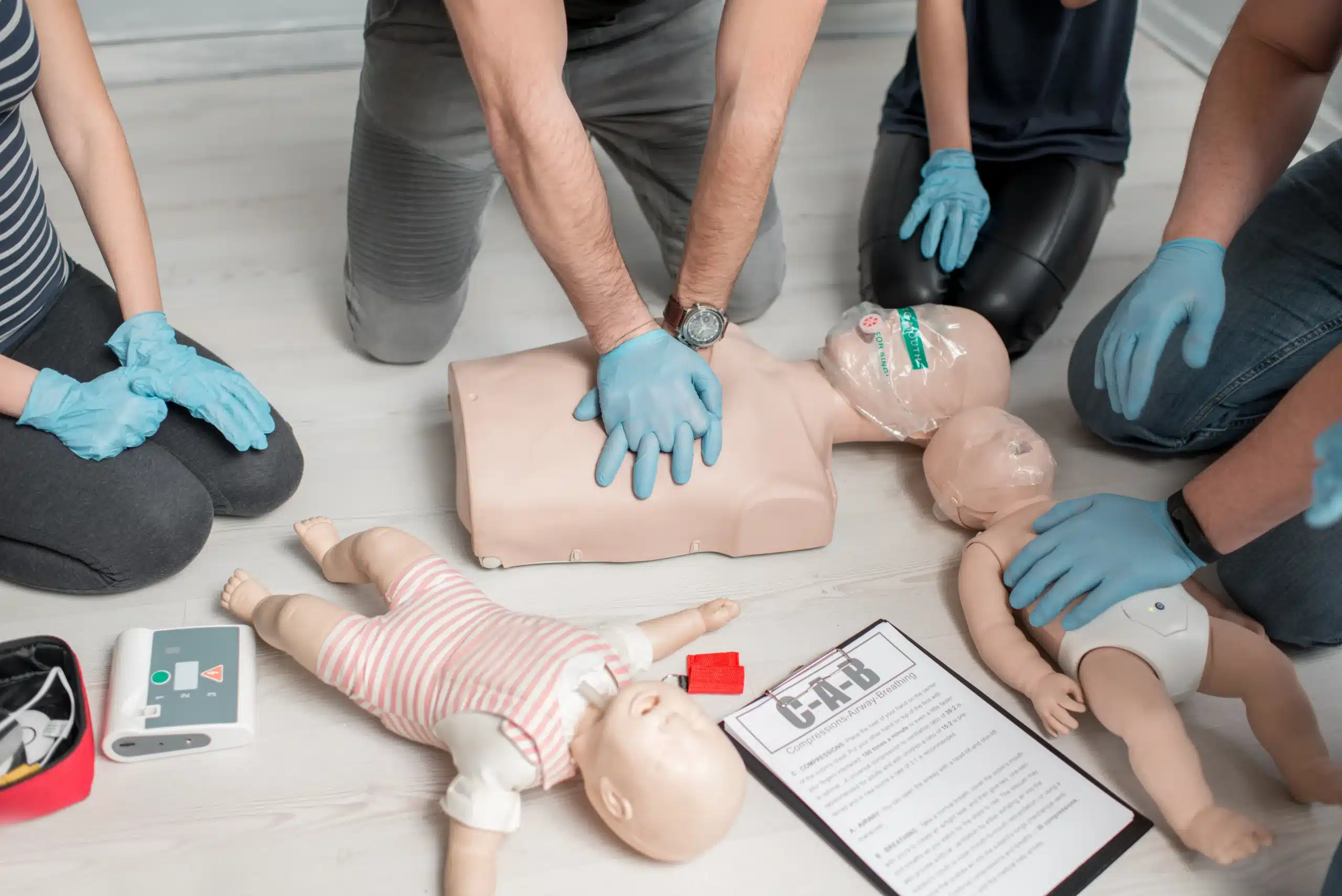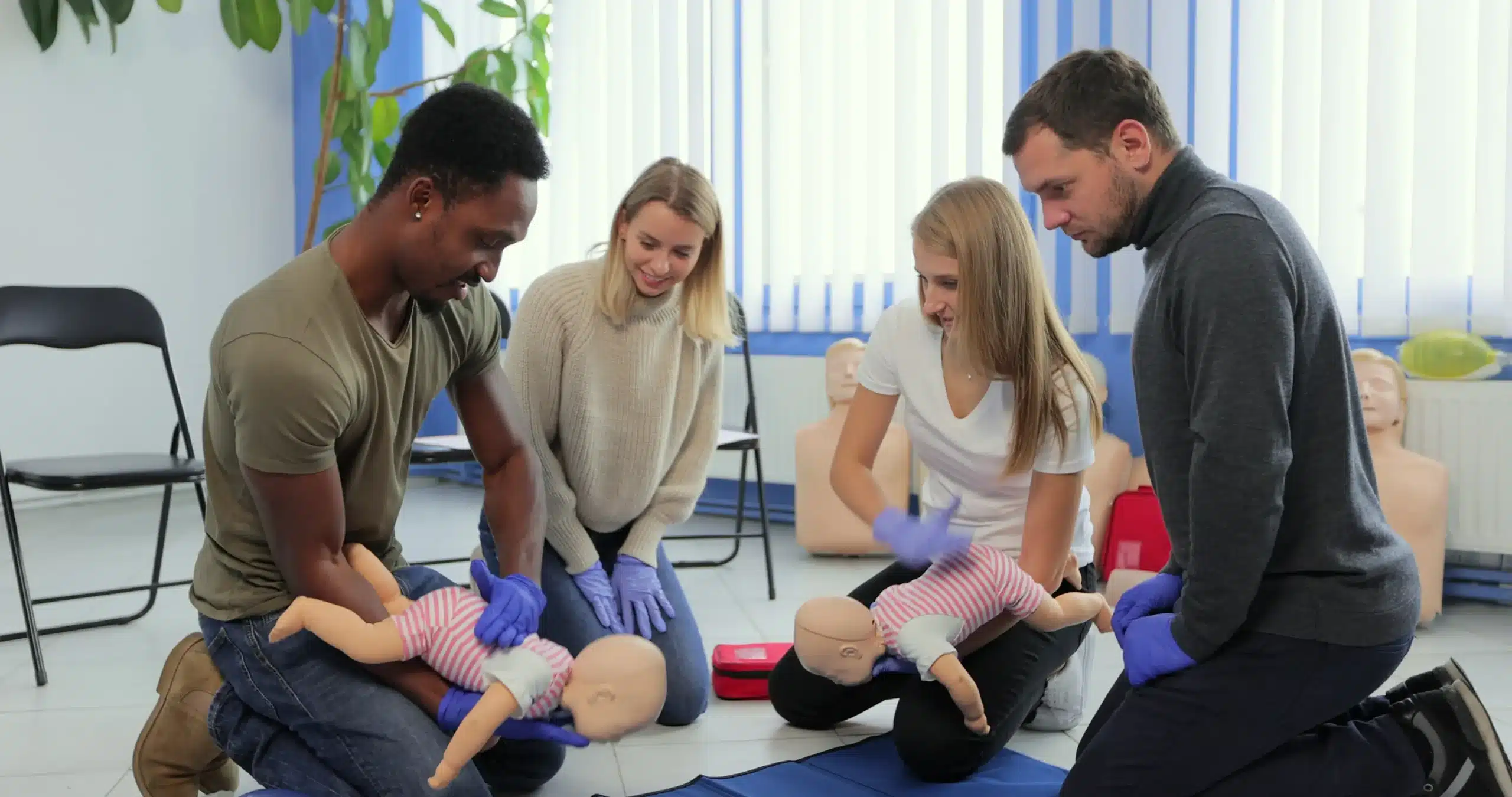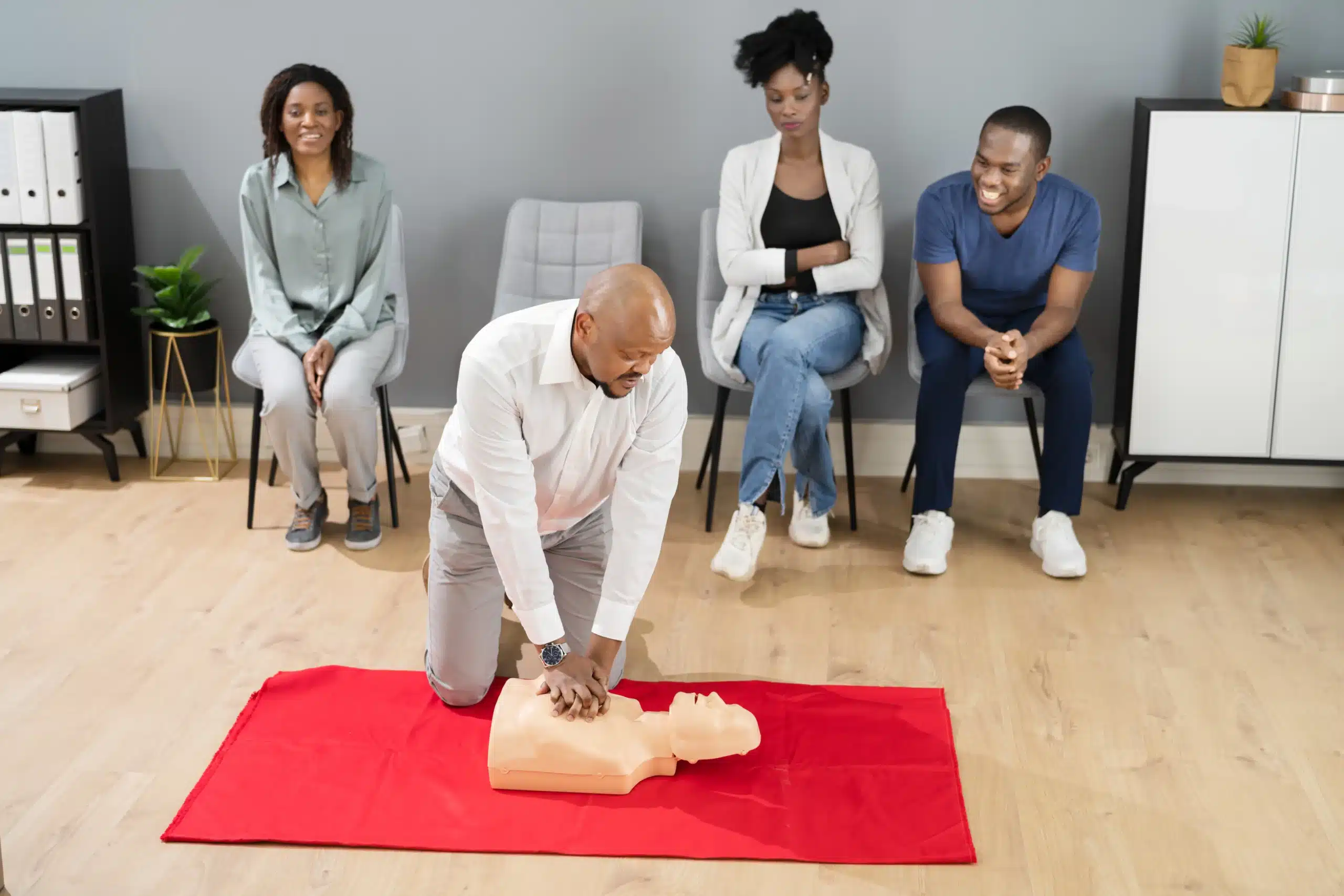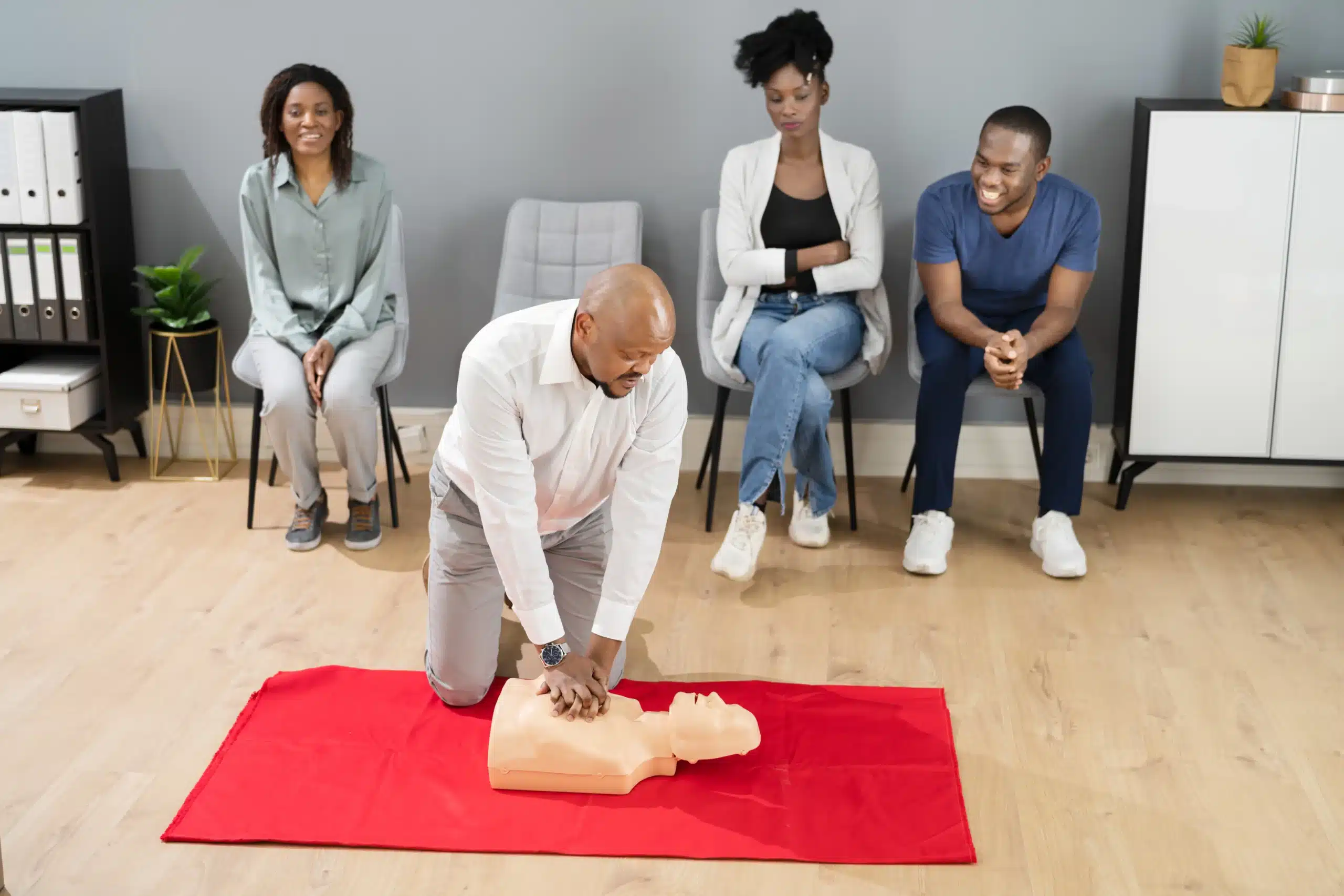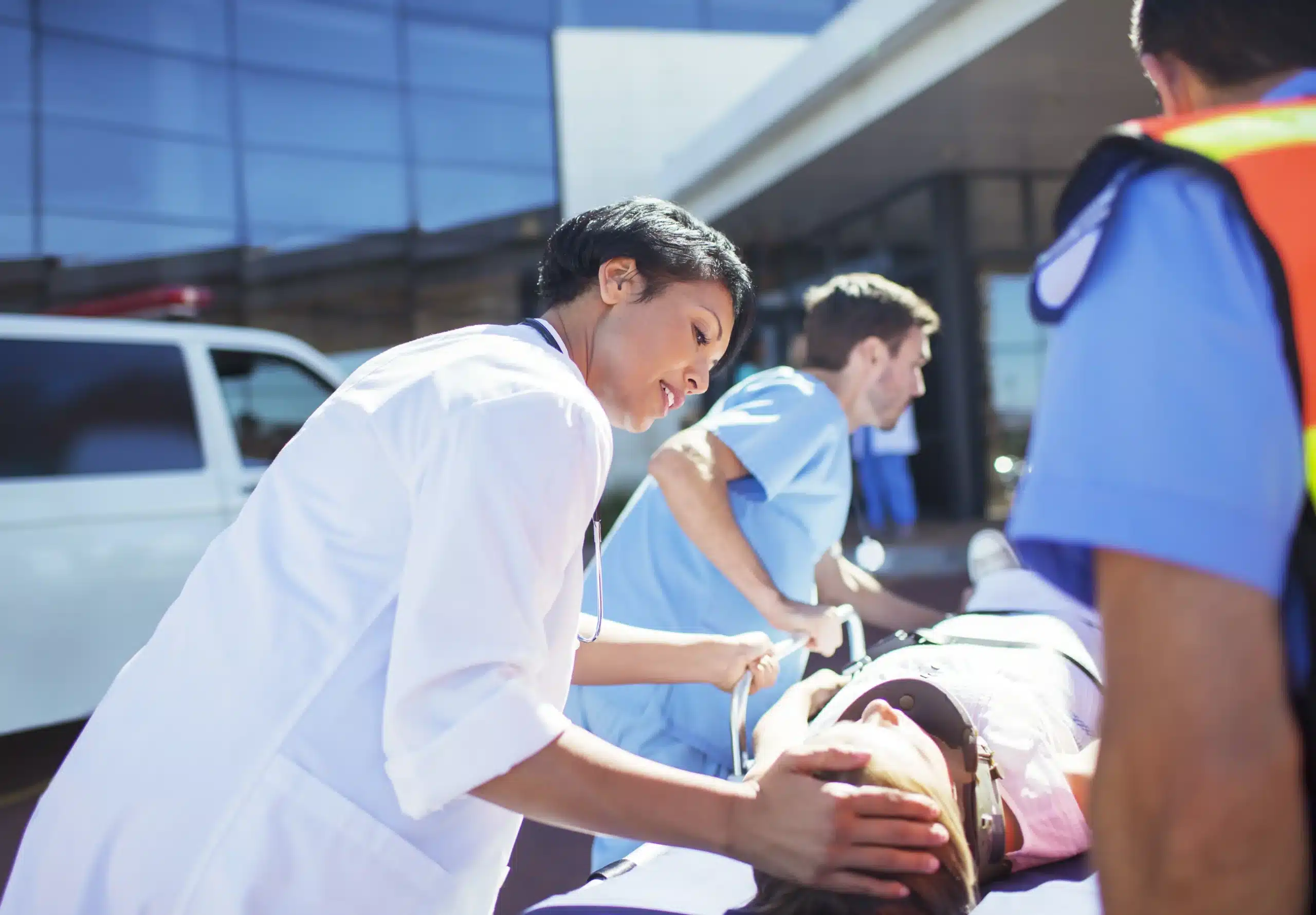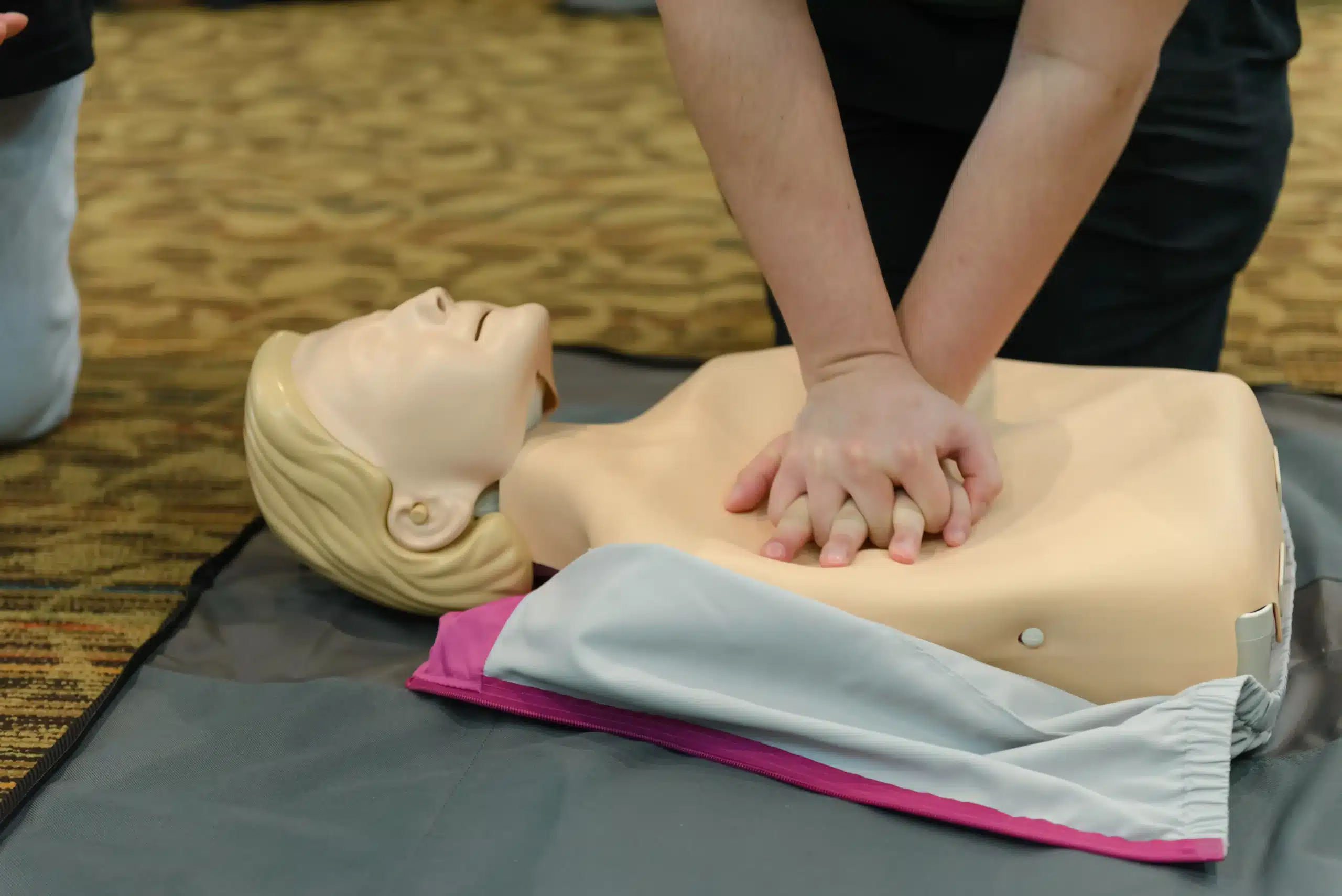Let’s face it, traditional classroom training isn’t always the most practical option. If you’re a busy professional or have a packed schedule, carving out time for a full-day ACLS course can feel impossible. That’s why ACLS HeartCode in SF is such a game-changer. This blended learning program lets you learn essential lifesaving skills at your own pace, online, before demonstrating your competency in a shorter, focused hands-on session. This guide will break down the benefits of this flexible approach, explore the key features of HeartCode ACLS, and provide you with the resources you need to find the right training provider in San Francisco. Ready to learn lifesaving skills on your own terms? Let’s get started.
Key Takeaways
- HeartCode ACLS blends online learning with hands-on practice: This flexible format allows you to learn at your own pace and then demonstrate your skills in a focused in-person session.
- Finding the right training center is key: Consider factors like location, scheduling, and the learning environment when choosing your ACLS provider. Look for clear refund policies and read reviews from other students.
- Maintain your skills and stay up-to-date: ACLS certification is valid for two years. Plan for recertification and look for providers that offer continuing education opportunities to keep your skills sharp.
What is HeartCode ACLS?
HeartCode ACLS Explained
HeartCode ACLS is the American Heart Association (AHA)’s blended learning course for Advanced Cardiovascular Life Support. It combines online learning with a hands-on skills session, giving you flexibility while learning these essential lifesaving skills. This approach lets you work through the course material at your own speed before demonstrating your skills to a certified AHA instructor. Learn more about the various ACLS course options available.
Blended Learning: How It Works
The HeartCode ACLS course begins with online modules, allowing you to learn core concepts and procedures at your convenience. After completing the online portion, you’ll schedule a brief, in-person skills session. This session focuses on practical application with an AHA instructor. You’ll demonstrate the skills learned online, ensuring you’re prepared for real-world emergencies. Vive CPR provides further details on this blended learning format.
HeartCode vs. Traditional ACLS
Traditional ACLS courses involve classroom lectures and group practice. HeartCode ACLS offers a more flexible, personalized learning experience. The online component lets you learn at your own pace, and the shorter, targeted in-person skills session confirms your competency. This blended learning format works well for busy professionals or those who prefer independent study. This ACLS HeartCode guide offers a helpful comparison of the two formats.
Key Features & Common Misconceptions
A common question about online learning is its effectiveness compared to traditional classroom training. Be assured, legitimate online ACLS courses, like HeartCode, offer comprehensive learning. HeartCode ACLS uses adaptive learning technology, tailoring the content to your learning style and pace. This personalized approach helps you focus on areas needing more practice and reinforces your understanding. Learn more about the benefits of this approach in this article about ACLS HeartCode. You can also find more information on HeartCode ACLS and its key features.
HeartCode ACLS: Costs & Providers in San Francisco
Course Fees Explained
Expect to pay around $260 for initial ACLS HeartCode certification, which typically takes about 12 hours to complete. Renewal courses are generally less expensive, around $190, and require about six hours. Your ACLS certification is valid for two years. These costs can vary slightly between providers, so checking directly with the training center is always a good idea. HeartStart CPR’s ACLS classes offer a good benchmark for pricing.
Top SF Training Centers
Finding the right ACLS course can feel a little overwhelming, so I’ve put together a few reputable training centers in San Francisco to get you started.
Bay Area CPR
Bay Area CPR offers American Heart Association (AHA) certified courses, meaning you’re getting high-quality, nationally recognized training. They have a solid reputation for comprehensive instruction. Consider checking their CPR classes in the SF Bay Area.
UCSF Kanbar Center
The UCSF Kanbar Center also provides AHA-certified BLS, ACLS, and PALS courses. However, double-check their availability, as their registration periods can sometimes be impacted.
HeartStart CPR
HeartStart CPR offers AHA ACLS certification and renewal classes throughout the San Francisco Bay Area. They’re known for providing same-day certification upon successful course completion, which can be helpful if you’re on a tight schedule.
Choosing the Right Provider
When selecting an ACLS provider, consider factors like location, scheduling flexibility, and the overall learning environment. Think about what’s most important to you—proximity to your home or work, weekend class options, or small class sizes? Reading reviews from past students can also offer valuable insights. Bay Area CPR’s guide on Advanced Cardiac Life Support in San Francisco offers helpful tips for finding the right course.
HeartCode ACLS: Course Format & Time Commitment
This section breaks down the HeartCode ACLS course structure and what you can expect in terms of time commitment. Understanding the blended learning format will help you prepare and schedule your training effectively.
Online Portion: Content & Duration
HeartCode ACLS is the American Heart Association’s (AHA) self-directed, online portion of the ACLS course. This eLearning program lets students learn the core ACLS principles at their own pace, offering a flexible alternative to traditional classroom courses. You’ll work through interactive modules, case simulations, and assessments covering essential algorithms and protocols. While the AHA doesn’t specify a strict timeframe for completing the online portion, it typically takes between 8 and 10 hours.
In-Person Skills Session: What to Expect
After completing the online modules, you’ll participate in a hands-on skills session. This session focuses on practical application and reinforces the knowledge you gained online. Think of it as a supervised practice session where you demonstrate your skills and receive real-time feedback from an AHA-certified instructor. You’ll work with a small group, allowing for personalized attention and guidance. The skills session includes megacode testing, which evaluates your ability to manage complex cardiovascular emergencies.
Total Time for Certification
The in-person skills session for HeartCode ACLS typically requires 5–6 hours to complete. Combined with the online portion, plan for roughly 13–16 hours total to achieve your ACLS certification. Bay Area CPR offers various scheduling options to accommodate busy professionals and students.
Flexible Scheduling
Finding a course that fits your schedule is crucial. Bay Area CPR offers ACLS courses daily, with options for both onsite and remote learning. This flexibility allows you to choose a time and location that works best for you, whether you prefer weekday evenings, weekends, or even daytime sessions. Contact Bay Area CPR directly to explore available dates and discuss your scheduling needs.
Prepare for HeartCode ACLS & Get Certified
Getting ready for your ACLS HeartCode certification involves a blend of online learning and hands-on practice. Here’s how to prepare and what to expect:
Recommended Prep Resources
The American Heart Association provides valuable resources like the ACLS Provider Manual and supplementary videos. Reviewing these HeartCode ACLS resources before starting the course can give you a solid foundation. Familiarize yourself with the algorithms and protocols—it will make the online modules much easier to grasp.
Tips for Success
Balancing work, family, and other commitments can make finding time for training a challenge. Look for providers like Bay Area CPR that offer flexible scheduling. Daily classes and a mix of in-person and online options can help you fit the course into your busy schedule. Creating a study plan and sticking to it will also help you stay on track.
Certification Requirements & eCard
To receive your American Heart Association ACLS provider card, you’ll need to successfully complete all components of the course. This includes demonstrating skills competency at all learning stations and passing several tests: CPR and AED skills, bag-mask ventilation, a Megacode simulation, and a written exam. Check with your chosen training center, such as Cascade Training, for their specific requirements. Once you’ve met all the criteria, you’ll receive your eCard, valid for two years.
Ongoing Support & Continuing Ed
A good training provider offers more than just the initial certification. Look for ongoing support and resources, like refresher courses and continuing education opportunities, to help you maintain your skills. Staying connected to a professional community, like the one offered by Bay Area CPR, can also be valuable. This ongoing learning is essential for staying proficient in ACLS techniques and keeping up with advancements in cardiovascular care.
HeartCode ACLS: Policies & Practicalities
This section covers the essential details about HeartCode ACLS, from cancellations to keeping your skills sharp. Understanding these practicalities will help you approach your training with confidence.
Cancellation & Refunds
Life happens, and sometimes plans change. Most providers, like the UCSF Kanbar Center, offer full refunds if you cancel up to 30 days before your HeartCode ACLS course. Rescheduling is often an option within this timeframe, too, so check with your chosen provider about their specific refund policies. Bay Area CPR is a great example of a provider with clear and accessible refund information.
Recertification
Your ACLS certification is valid for two years. Before it expires, you’ll need to recertify to maintain your credentials and stay current with the latest guidelines. Many providers offer ACLS renewal courses, so finding a convenient option shouldn’t be difficult. Plan and schedule your recertification in advance to avoid any lapses in your qualification. Check with providers like HeartStart CPR for their recertification options.
Stay Updated with AHA Guidelines
The American Heart Association (AHA) regularly updates its guidelines to reflect the latest research and best practices in cardiovascular care. Staying informed about these updates is crucial for providing the most effective care. Many training centers, such as Bay Area CPR, offer resources like refresher courses and continuing education opportunities to help you stay current.
Using Your ACLS Skills
The HeartCode ACLS curriculum equips you with a comprehensive skill set to handle cardiac emergencies. You’ll learn essential skills, from rhythm recognition and airway management to mastering ACLS algorithms and working effectively within a resuscitation team. These skills are invaluable in various healthcare settings and can make a real difference in critical situations. Regular practice and ongoing learning are key to maintaining proficiency and confidence in your ACLS abilities. Consider supplementing your training with resources from reputable providers like HeartStart CPR.
Frequently Asked Questions
What exactly does “blended learning” mean in the context of HeartCode ACLS? Blended learning combines online self-paced learning with a shorter, in-person skills practice session led by a certified instructor. You’ll learn the core ACLS material online at your own speed and then demonstrate your skills and knowledge during the hands-on portion.
How does HeartCode ACLS differ from a traditional ACLS course? Traditional ACLS courses typically involve extensive classroom lectures and group practice. HeartCode ACLS offers more flexibility with its online component, allowing you to study when and where it’s convenient for you. The in-person skills session is also more focused and shorter, confirming your competency after you’ve completed the online modules.
How long does it take to complete the entire HeartCode ACLS course? The online portion of HeartCode ACLS usually takes between 8-10 hours, though it varies depending on your learning pace. The in-person skills session typically lasts 5-6 hours. In total, expect to dedicate roughly 13-16 hours to achieve your ACLS certification.
What if I need to cancel my HeartCode ACLS course? Most training centers have specific cancellation policies, often offering full refunds if you cancel within a certain timeframe, usually around 30 days before the course start date. Always check with your chosen provider for their specific refund and cancellation policies. Rescheduling is also often an option.
How can I stay up-to-date with the latest ACLS guidelines after I’m certified? The American Heart Association regularly updates its guidelines. Many training centers offer resources like refresher courses, continuing education opportunities, and online communities to help you stay current with the latest best practices in cardiovascular care. Staying connected with your training provider and actively seeking out updated information will ensure you maintain proficiency in your ACLS skills.

